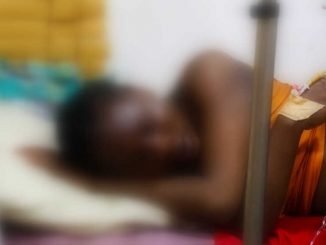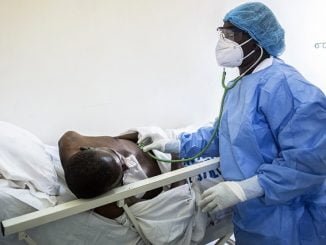
Busia, Uganda | URN | Political interference has been blamed for the slow response to measures put in place to contain Cholera in Busia Municipality. The area has had an active Cholera outbreak since September 2019.
Dr Patrick Lulem, the Medical Superintendent of Busia Health Center IV says that 38 cases have been reported in the area over a period of four months. During the last one month, the district health officials reported two separate outbreaks, which have left twenty people hospitalized, and one dead.
The outbreaks were attributed to the use of contaminated water, poor sanitation characterized by open defecation, and poor personal and domestic hygiene, according to Richard Wanyama, a field officer with the Uganda Red Cross Society (URCS) -Busia Branch.
In order to contain the outbreaks, the area local government intensified health education with an emphasis on hand washing and keeping homes clean, construction of latrines in affected communities and use of safe water. But health officials within the municipality say that their efforts have been curtailed by politicians who block the implementation of measures against unhygienic places.
Dr Idro Basil, the cholera isolation center manager at Busia health center IV says that the political wing has blocked health workers from enforcing some of the policies that can help to curb the disease.
Peter Nabunwa, the health inspector for western division in Busia Municipality says that he has been severally interrupted by area councilors whenever he wanted to arrest residents who don’t have latrines and traders who operate places that don’t meet the required standards.
Read Also: Cholera outbreak confirmed in Kampala
James Mulimba, the Eastern division health inspector says that unless there is a political will to fight the disease, cholera will continue devastating communities in the area.
However, Patrick Barasa, the secretary for health in Busia Municipality said health workers have failed to play their role and have ended up accusing politicians. On the other hand, Richard Kalapa, the LCIII chairman of Western division says that health workers were not involving local leaders when conducting operations in the area.



